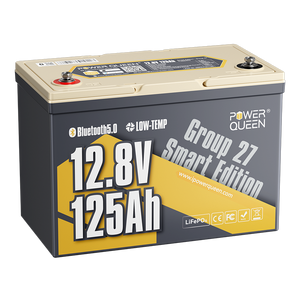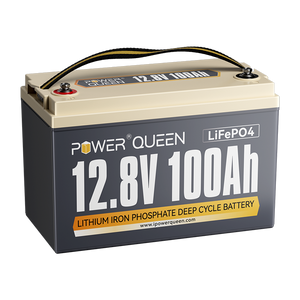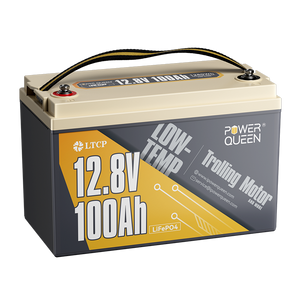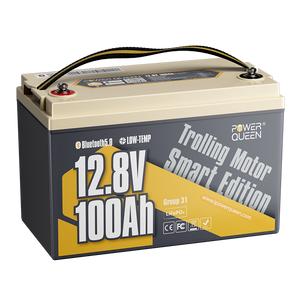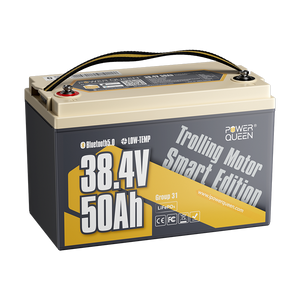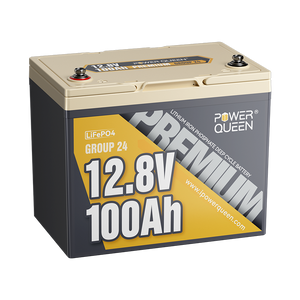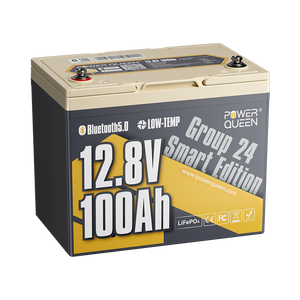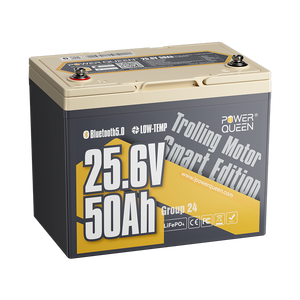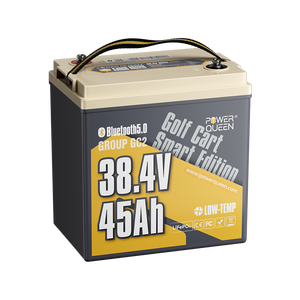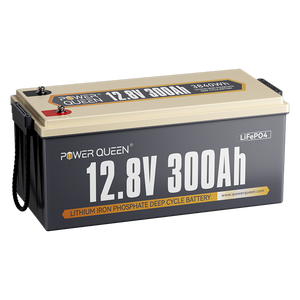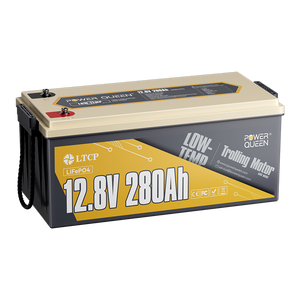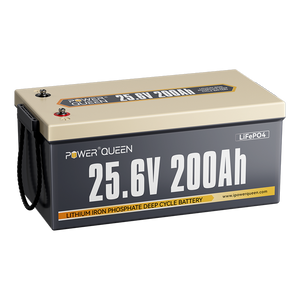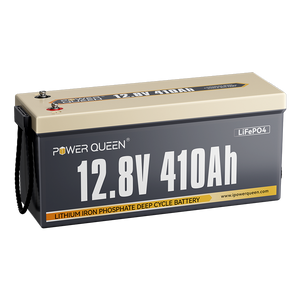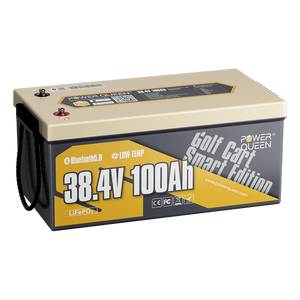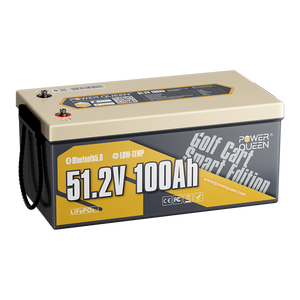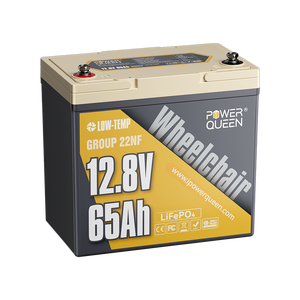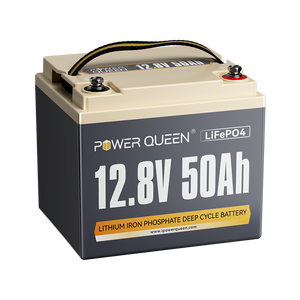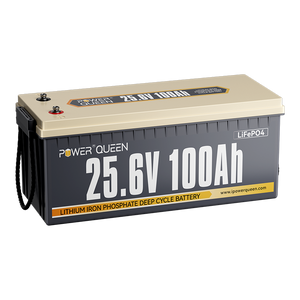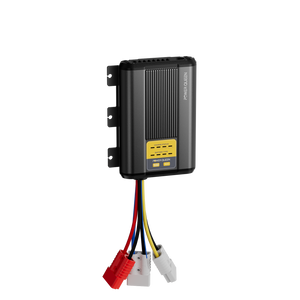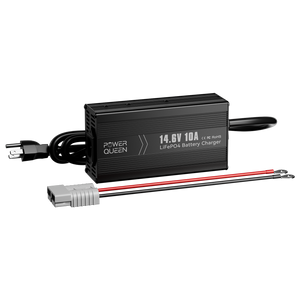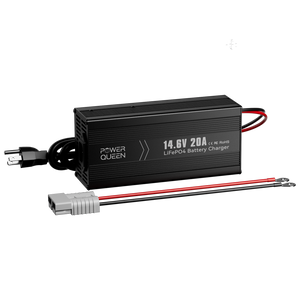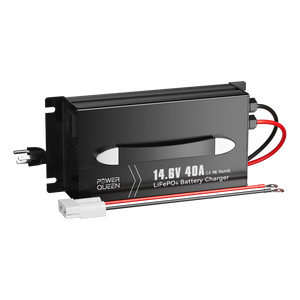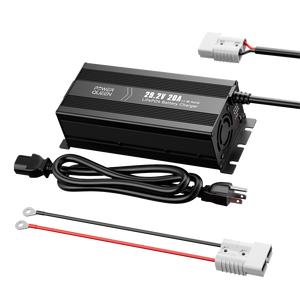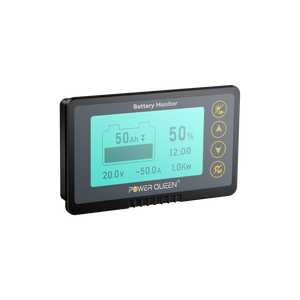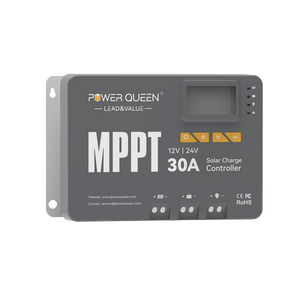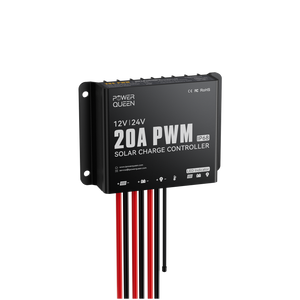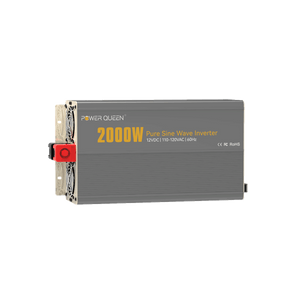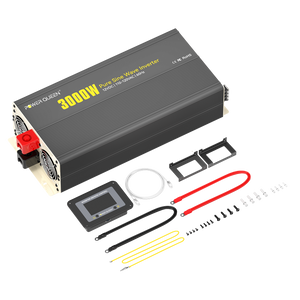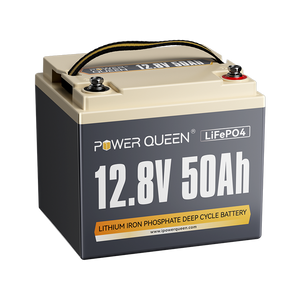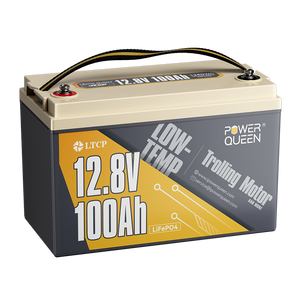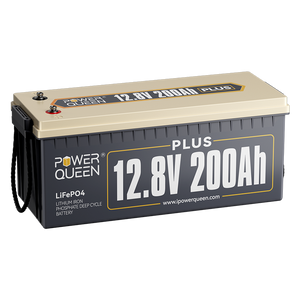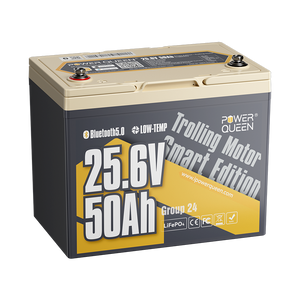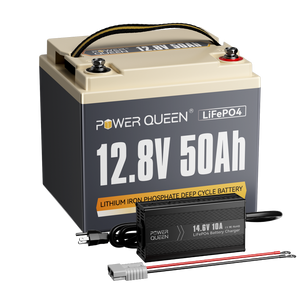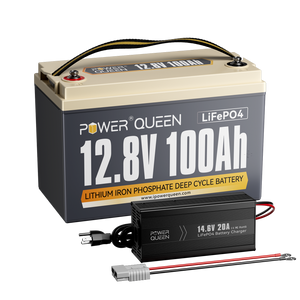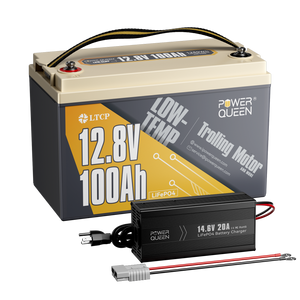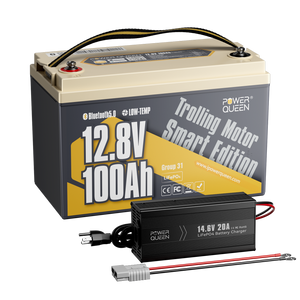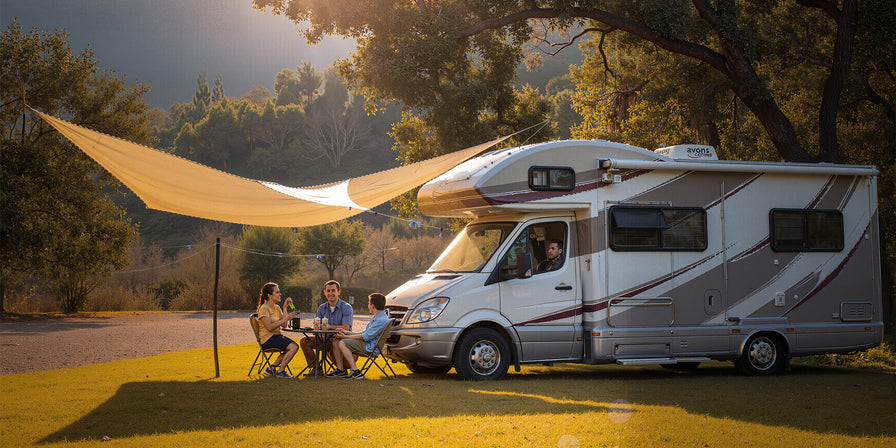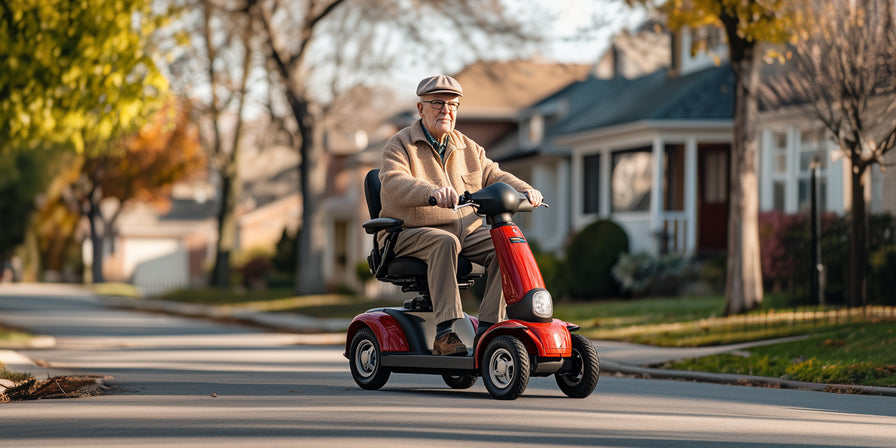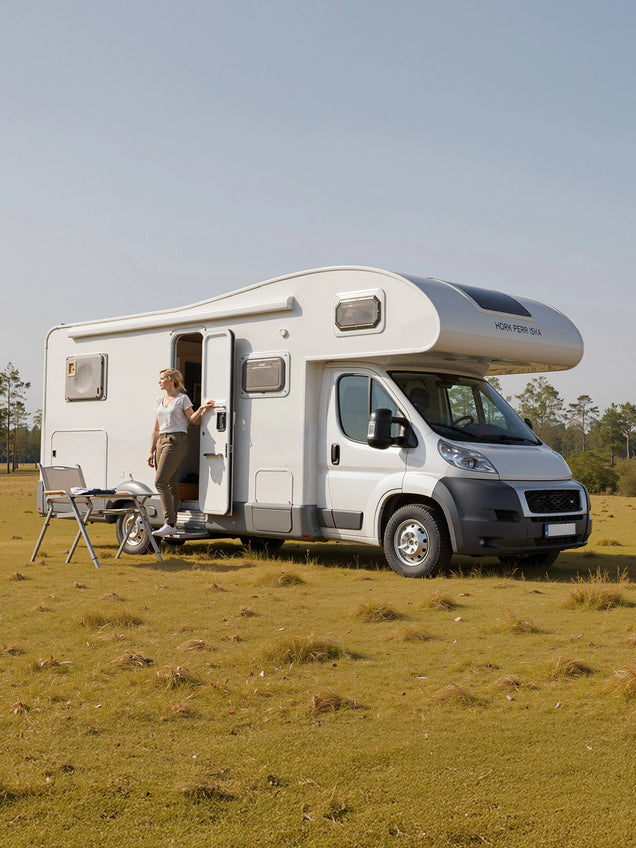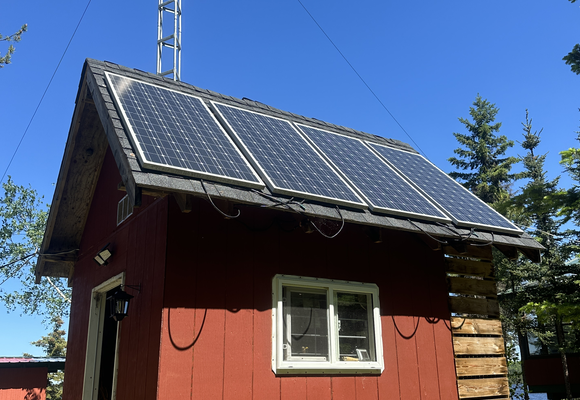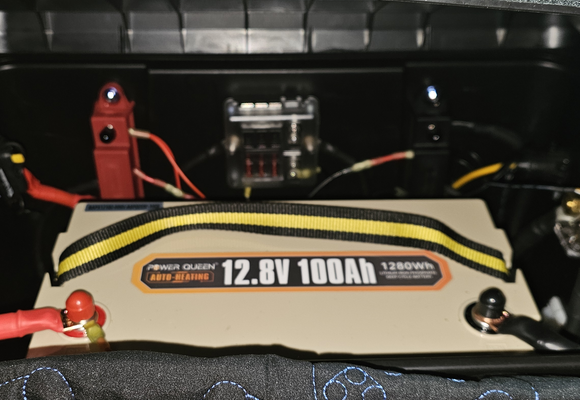What's the Difference Between 48V and 51.2V Golf Cart Batteries
Golf carts have evolved significantly over the years, moving from traditional lead-acid batteries to modern lithium-ion alternatives. Among the popular options for upgrading or replacing your cart's power source are 48V and 51.2V batteries. Knowing the differences between these two voltage choices can help you make a more informed decision based on your specific needs.
Table of Content
- Part 1. What Are 48V and 51.2V Golf Cart Batteries?
- Part 2. Performance Comparison Between 48V and 51.2V Golf Cart Batteries
- 2.1 Power Output
- 2.2 Efficiency
- 2.3 Range
- 2.4 Acceleration and Speed
- 2.5 Battery Life
- 2.6 Handling and Weight
- 2.7 Charging Time
- Part 3. Can You Convert a 48v Golf Cart to Lithium Battery?
- Part 4. Cost Consideration Between 48V & 51.2V Battery
- Part 5. Other Cost Factors
- Part 6. FAQs about Golf Cart Batteries
- Part 7. Conclusion
Part 1. What Are 48V and 51.2V Golf Cart Batteries?
48V Golf Cart Batteries: The 48V battery setup is the most widely used configuration in golf carts. It usually consists of six 8V lead-acid batteries connected in series or four 12V batteries. This voltage system is ideal for most standard golf carts, offering a solid balance of performance and efficiency.
Pros:
- Widespread Availability: 48V golf cart batteries are widely available both in stores and online, making it convenient to find replacements and maintenance parts.
- Affordability: These batteries are typically more affordable than newer lithium-ion alternatives, offering a budget-friendly option.
- Compatibility: Many older golf cart models are designed for 48V batteries, allowing for easy replacement without the need for modifications.
Cons:
- High Maintenance: Lead-acid 48V batteries require frequent upkeep, including checking and refilling water levels to prevent damage.
- Lower Efficiency: With an energy efficiency of only 80-85%, these batteries need to be charged more often and are less energy-efficient compared to newer technologies.
- Gradual Power Loss: As the battery discharges, its performance declines, leading to reduced speed and power as the charge decreases.
- Heavy Weight: Lead-acid batteries are bulky and heavy, which can negatively affect the golf cart’s handling and driving range.
51.2V Golf Cart Batteries: The 51.2V battery system is a newer alternative, often used in high-performance or upgraded golf carts. This configuration is typically achieved by connecting sixteen lithium-ion cells in series, each with a nominal voltage of 3.2V. The 51.2V system offers a slightly higher voltage than the standard 48V, providing distinct advantages.
Pros:
- Higher Voltage & Improved Performance: The 51.2V lithium battery’s higher voltage delivers more power, resulting in better speed and performance, especially when tackling inclines or carrying heavy loads.
- Increased Efficiency: With an efficiency rate of 92-98%, lithium batteries provide longer driving ranges and more efficient energy use compared to traditional lead-acid batteries.
- Maintenance-Free: Unlike lead-acid options, 51.2V lithium batteries require no regular upkeep, such as checking water levels, offering a hassle-free, low-maintenance solution.
- Longer Lifespan: These batteries typically last over 10 years, far surpassing the 3 to 5-year lifespan of lead-acid alternatives.
- Lighter Weight: Lithium batteries are significantly lighter than lead-acid versions, reducing the cart's weight and improving handling and efficiency.
Cons:
- Higher Upfront Cost: 51.2V lithium batteries come with a significantly higher price tag compared to lead-acid options, requiring a larger initial investment.
- Compatibility Issues: Older golf cart models may need modifications or new components to handle the increased voltage, potentially raising the total cost of the upgrade.
Part 2. Performance Comparison Between 48V and 51.2V Golf Cart Batteries
2.1 Power Output:
- 48V Batteries: Deliver a standard level of power, making them well-suited for most golf carts. They provide sufficient torque and speed for typical golf course terrain and everyday use.
- 51.2V Batteries: Provide higher power output than 48V batteries. The increased voltage boosts performance, offering faster acceleration, higher speeds, and improved hill-climbing abilities.
2.2 Efficiency:
- 48V Batteries: Efficient for standard applications, though performance may decline as they age. While reliable in energy delivery, they have lower energy density compared to newer technologies.
- 51.2V Batteries: Typically utilize advanced lithium-ion technology, offering higher efficiency and more consistent power output. They maintain performance better over time and experience fewer energy losses than older battery types.
2.3 Range:
- 48V Batteries: Generally provide enough range for most golf course trips, though the distance can vary depending on the battery’s age, condition, and driving habits.
- 51.2V Batteries: Often deliver a longer range thanks to their higher energy density and efficient power management. The increased voltage allows for extended use on a single charge, making them ideal for longer courses or more demanding routes.
2.4 Acceleration and Speed:
- 48V Batteries: Offer adequate acceleration and top speed for everyday golf cart use, making them suitable for casual driving and standard golf course conditions.
- 51.2V Batteries: Provide better acceleration and higher top speeds, with enhanced power output leading to quicker starts and a more responsive driving experience.
2.5 Battery Life:
- 48V Batteries: Deliver reliable performance but tend to have a shorter lifespan compared to more modern technologies. Lead-acid variants, in particular, require more frequent upkeep and replacement.
- 51.2V Batteries: Known for their longer lifespans and superior durability due to advanced lithium-ion technology. They typically need less maintenance and experience a slower rate of capacity decline over time.
2.6 Handling and Weight:
- 48V Batteries: Typically heavier due to the greater number of lead-acid cells, which can impact the cart’s handling and overall performance.
- 51.2V Batteries: Generally lighter thanks to the higher energy density of lithium-ion cells, improving the cart’s handling, efficiency, and reducing the vehicle’s overall weight.
2.7 Charging Time:
- 48V Batteries: Usually take longer to charge, especially with older lead-acid technology, and may need more time to reach full capacity.
- 51.2V Batteries: Charge significantly faster thanks to the efficiency of lithium-ion technology, providing quicker turnaround between uses. For example, Power Queen 48V (51.2V) lithium golf cart batteries support 1C charging, allowing a full charge in about 1-2 hours. However, it’s important to use a charger specifically designed for LiFePO4 lithium batteries, as their charging logic differs from lead-acid models.
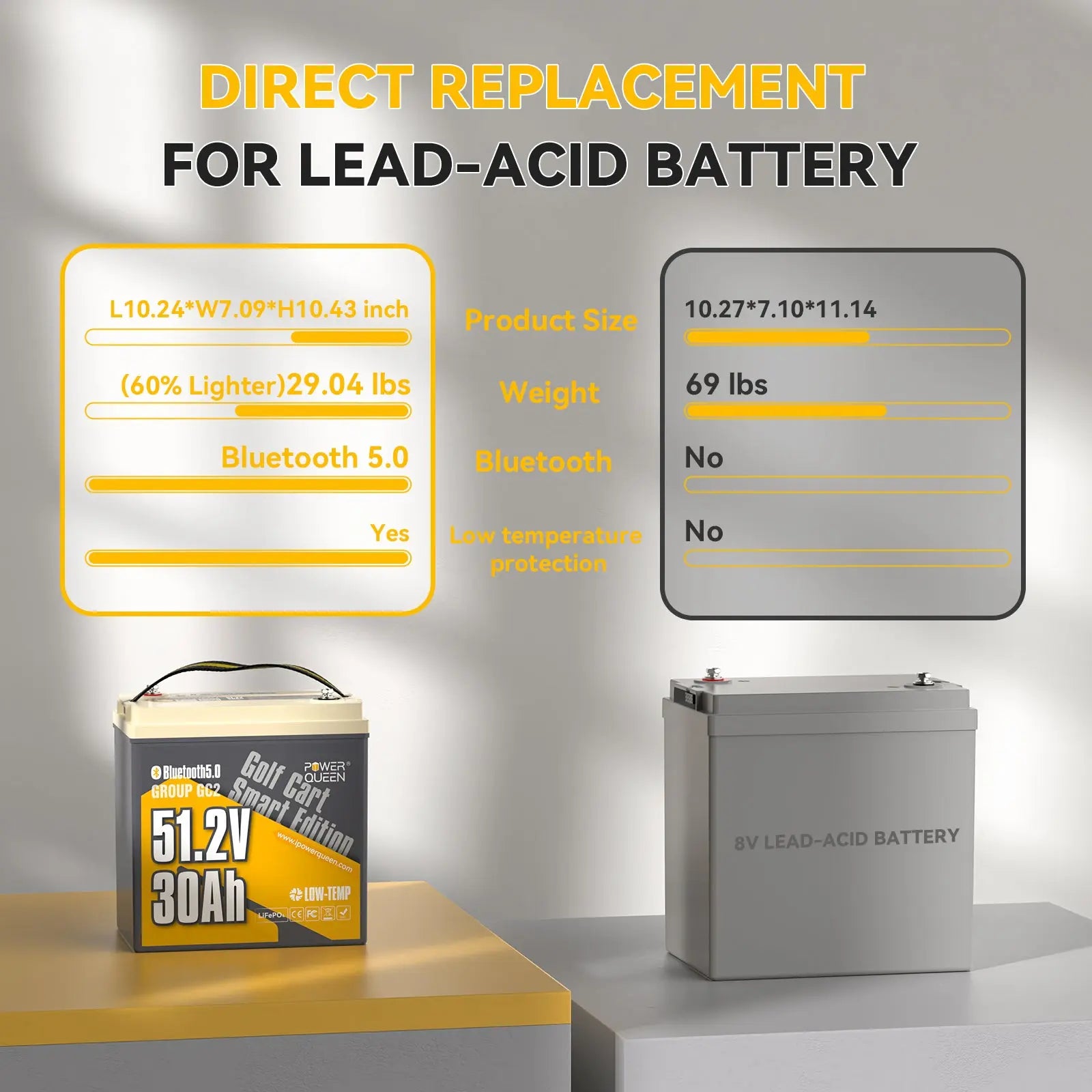
Power Queen 48V (51.2V) 30Ah GC2 Golf Cart Smart Lithium Battery
Part 3. Can You Convert a 48V Golf Cart to Lithium Battery?
Yes, you can convert a 48V golf cart to use lithium batteries, and many owners opt for this upgrade to take advantage of lithium technology's benefits.
For more detailed guidance, check out the article on How to Convert a Golf Cart to Lithium Battery.
Part 4. Cost Consideration Between 48V & 51.2V Battery
When comparing the costs of 48V and 51.2V golf cart batteries, several key factors need to be considered. Here’s a summary of the cost-related aspects:
4.1 Initial Cost:
- Lead-Acid Batteries: Typically, 48V lead-acid batteries are more budget-friendly upfront compared to lithium alternatives. Their widespread availability and established technology make them a cheaper option.
- Lithium Batteries: While 48V lithium batteries are more expensive initially, they deliver better performance and longer lifespan. The higher upfront cost is often offset by the long-term advantages they provide.
4.2 Maintenance Costs:
- Lead-Acid Batteries: Require regular maintenance, such as checking and refilling water levels. Over time, maintenance costs can accumulate, especially if frequent replacements are necessary.
- Lithium Batteries: Maintenance-free, resulting in lower ongoing costs and reduced hassle for the user.
4.3 Replacement Frequency:
- Lead-Acid Batteries: Generally last between 3 to 5 years, which can lead to more frequent replacements and higher long-term costs.
- Lithium Batteries: Offer a longer lifespan of 8 to 10 years, decreasing the frequency of replacements and potentially reducing long-term expenses.
Part 5. Other Cost Factors
5.1 Charging Equipment:
- Charger Compatibility: Higher voltage batteries (e.g., 51.2V) typically require specific chargers. If you’re transitioning from a 48V to a 51.2V battery, you may need to buy a new charger, which can increase overall expenses.
- Charging Efficiency: Lithium batteries generally provide more efficient charging than lead-acid batteries, potentially lowering energy costs.
5.2 Installation and Modifications:
- 48V Systems: Replacing with a new 48V battery usually involves fewer modifications and can be less costly regarding installation.
- 51.2V Systems: Upgrading to a 51.2V battery may require additional modifications or adjustments to the golf cart, potentially raising installation costs.
5.3 Summary
48V Batteries: Typically more affordable upfront, but ongoing maintenance and more frequent replacements can increase the total cost over time. With lead-acid batteries, higher maintenance costs should also be taken into account.
51.2V Batteries: Although they come with a higher initial price, they provide long-term benefits such as lower maintenance and a longer lifespan. Keep in mind potential additional costs for chargers and system compatibility.
Selecting the right battery depends on your budget, performance requirements, and how long you intend to use your golf cart.
Part 6. FAQs about Golf Cart Batteries
1. Can I use a 51.2V battery in my 48V golf cart?
Yes, most 48V golf carts can accommodate the slight voltage increase from 48V to 51.2V, particularly if the battery utilizes lithium-ion technology. However, it’s advisable to check with your manufacturer or consult a professional to confirm compatibility.
2. What’s the difference between 48V and 51.2V batteries?
The primary difference lies in the voltage. A 51.2V battery usually provides slightly more power, enhancing performance, especially in lithium-based batteries. This results in improved efficiency, longer driving ranges, and more consistent performance.
3. Are 51.2V lithium batteries better than 48V lead-acid batteries?
Yes, generally speaking. 51.2V lithium batteries offer superior energy efficiency (92-98%), a longer lifespan, lighter weight, and require no maintenance, whereas 48V lead-acid batteries are less efficient, heavier, and need regular maintenance.
4. Will a higher voltage battery make my golf cart faster?
A higher voltage battery, such as 51.2V, can enhance performance by delivering improved acceleration and speed, particularly when under load or climbing inclines.
However, factors like the motor, controller, and overall system design also play a significant role in determining speed.
5. Is a higher Ah battery better for a golf cart?
A higher Ah rating indicates that the battery can store more energy, resulting in a longer driving range before needing to recharge. This allows for extended driving periods, making it ideal for long courses or prolonged use.
However, a higher Ah battery will also be heavier and larger. Make sure your golf cart’s battery compartment can accommodate the increased size and weight. For high amp options, consider the Power Queen 48 (51.2V) 100Ah lithium golf cart battery, which provides 5120Wh of energy per battery and can cover 40 to 47 miles when fully charged.
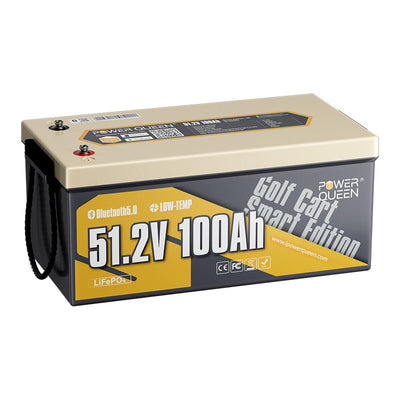

6. Why are 51.2V lithium golf cart batteries still called 48V?
The term "48V" has become the standard nomenclature for golf cart batteries over the years, even though lithium battery technology has a nominal voltage of 51.2V. This slight voltage difference falls within the acceptable range for 48V systems, ensuring compatibility and enhanced performance.
As a result, the industry continues to refer to them as "48V" for convenience and familiarity, while 51.2V lithium batteries, such as those from Power Queen, provide the advantages of a higher voltage.
Part 7. Conclusion
A 51.2V battery can be an excellent choice for a 48V golf cart. The slight increase in voltage (51.2V vs. 48V) usually falls within the acceptable range for most 48V systems, allowing the golf cart to operate efficiently. Typically utilizing lithium iron phosphate (LiFePO4) chemistry, the 51.2V battery provides stable performance, extended runtime, and enhanced durability compared to standard 48V lead-acid batteries.
